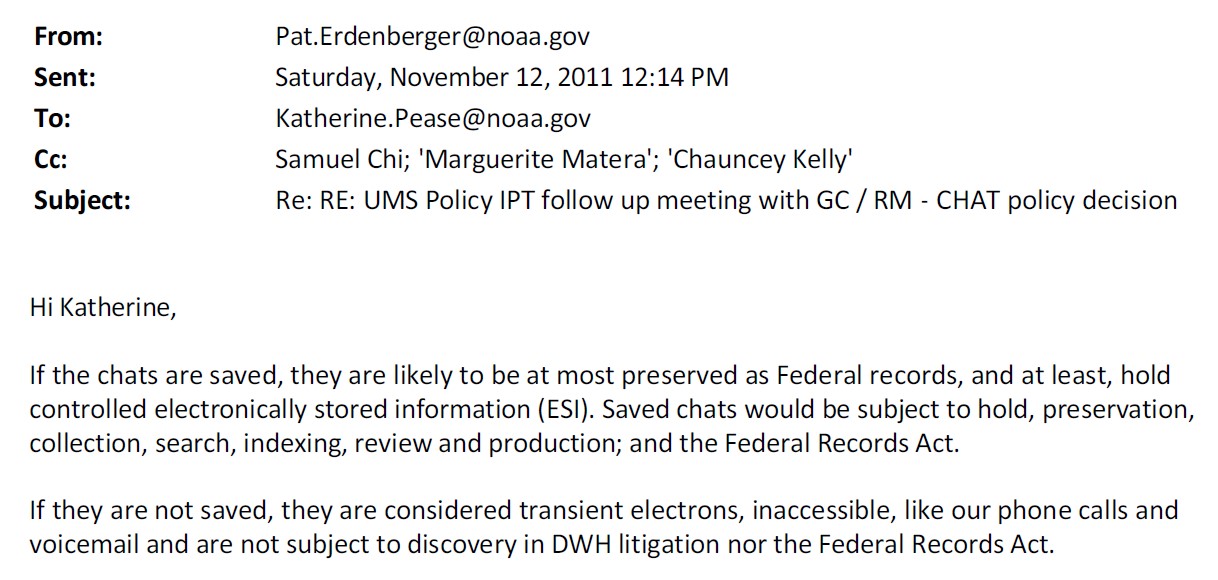Cause of Action Institute Urges Chairman Cummings to Investigate EPA Employees’ Violation of Disclosure & Records Retention Laws
Cause of Action Institute (CoA Institute), a nonpartisan strategic oversight group, sent a letter to U.S. Rep. Elijah Cummings, chairman of the U.S. House Committee on Oversight and Reform (Oversight Committee), on the eve of the committee’s hearing on transparency, to urge Chairman Cummings to investigate government employees using unauthorized messaging applications on their government devices to avoid and/or prevent disclosure, as required under federal law.
“We applaud Chairman Cummings for his commitment to government transparency and urge him to use the powers of his committee to determine why government employees can ignore government policies and federal law and use unauthorized messaging applications that thwart disclosure of government business,” said James Valvo, counsel and senior policy advisor at Cause of Action Institute. “The EPA promised it would clean up its act and eliminate unauthorized apps installed on government devices, but our investigation has found the EPA may have failed to take the necessary action, as a result, these unauthorized apps pose considerable harm to enforcing federal disclosure laws.”
By letter, the EPA informed the National Archives and Records Administration (NARA) that as of June 2018, the EPA had “completed its process” of disabling downloads of unauthorized applications subject to two minor exceptions, and removed most previously installed applications. However, CoA Institute uncovered evidence that 62.16 percent of all apps installed on EPA-furnished devices were unapproved applications, including the non-work-related or encrypted messaging applications that violate record retention and disclosure laws.
Cause of Action Institute, by letter, informed Chairman Cummings of this information in order to assist the Oversight Committee’s duty to reign in government abuses. CoA Institute also informed NARA and the EPA Inspector General of the findings.
The letter we sent to Chairman Cummings can be found below.
Background on our investigation can be found here and here.
